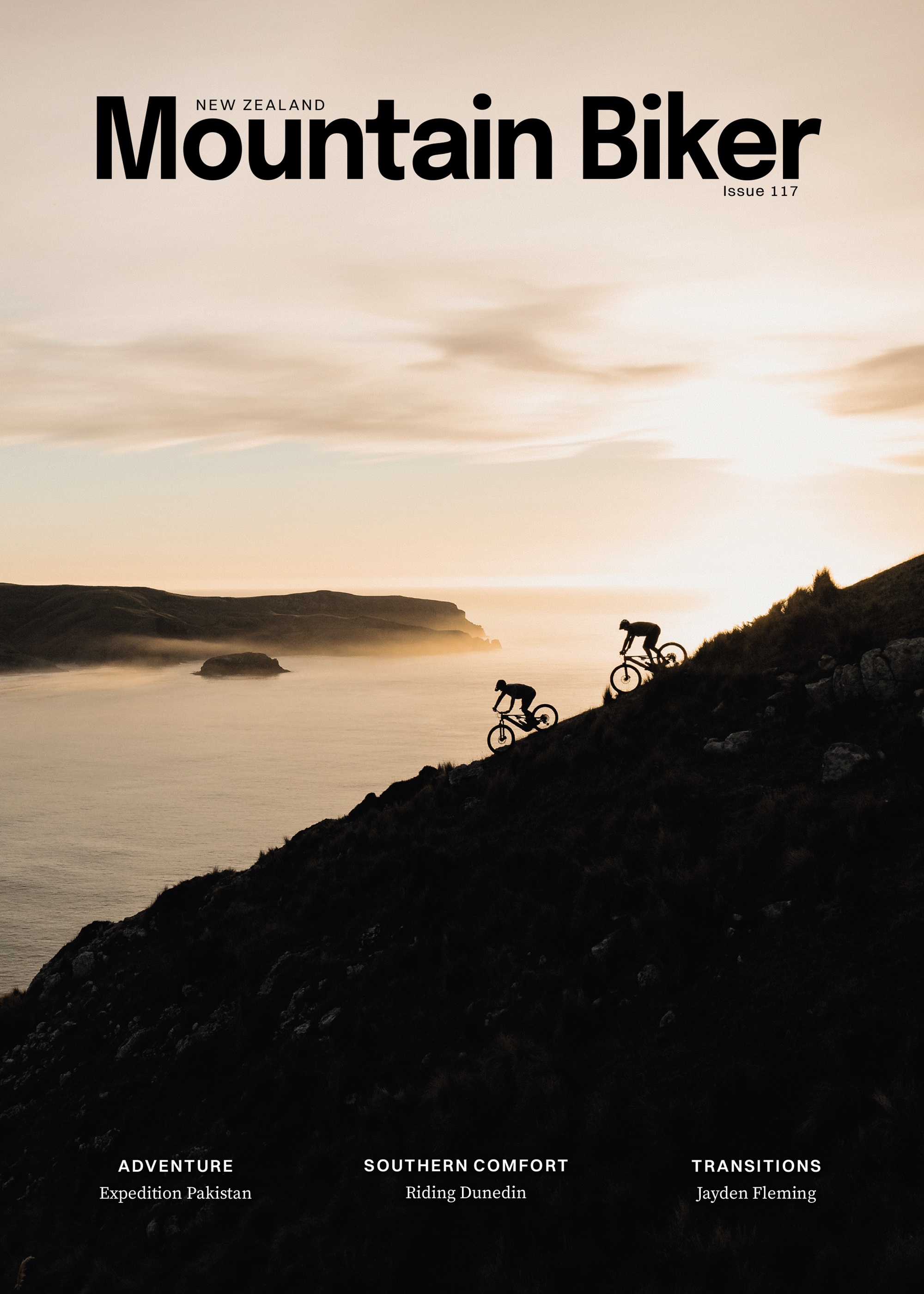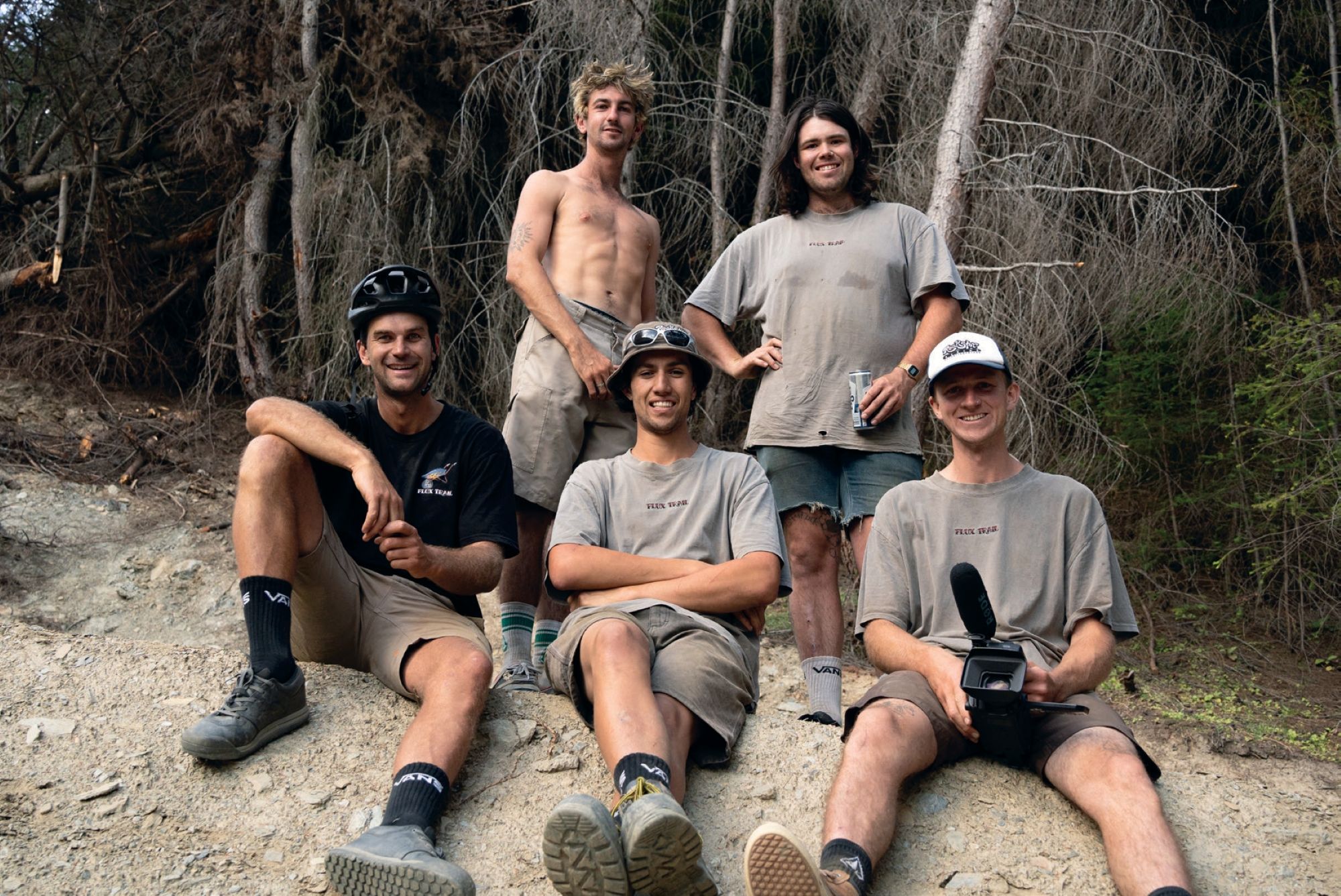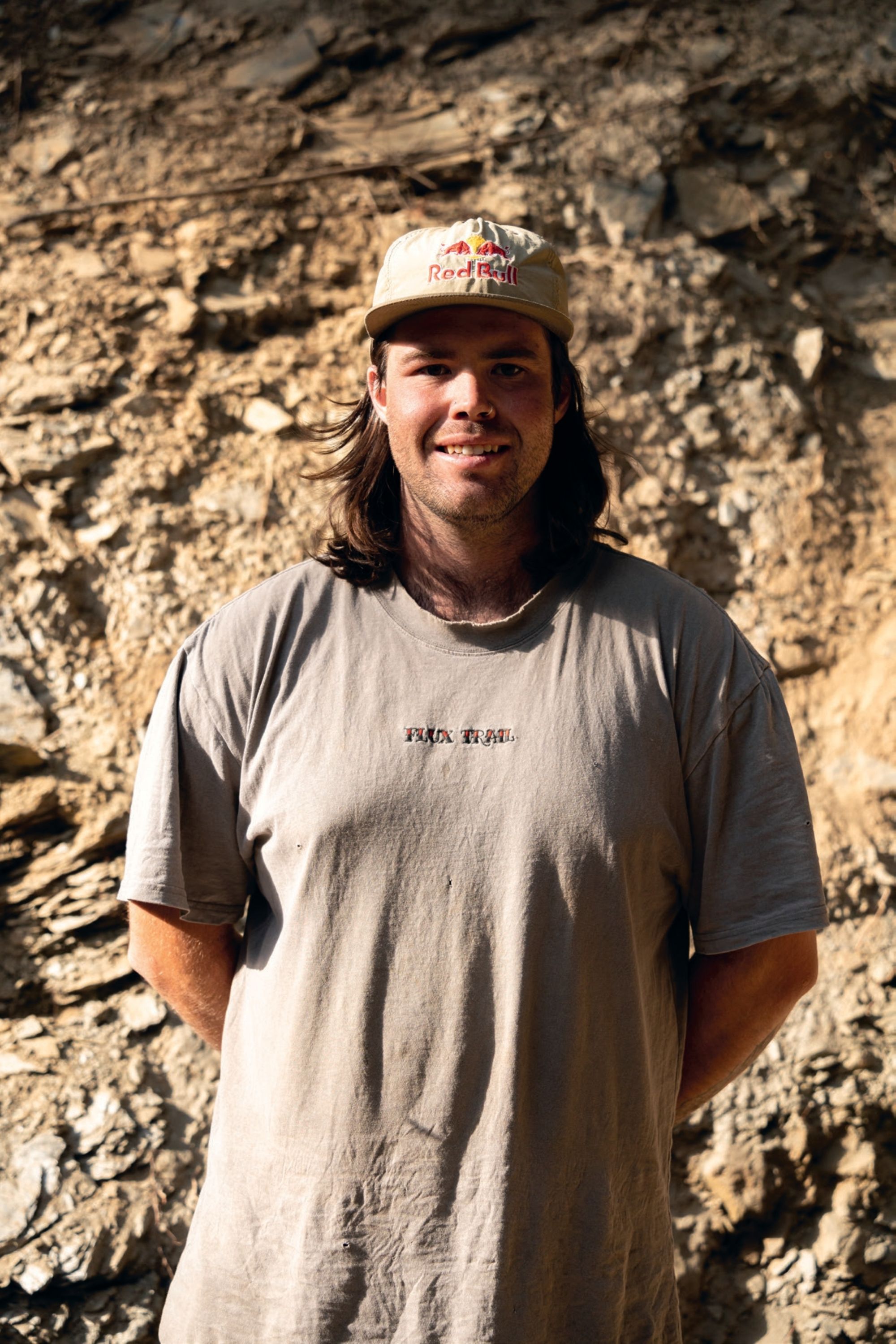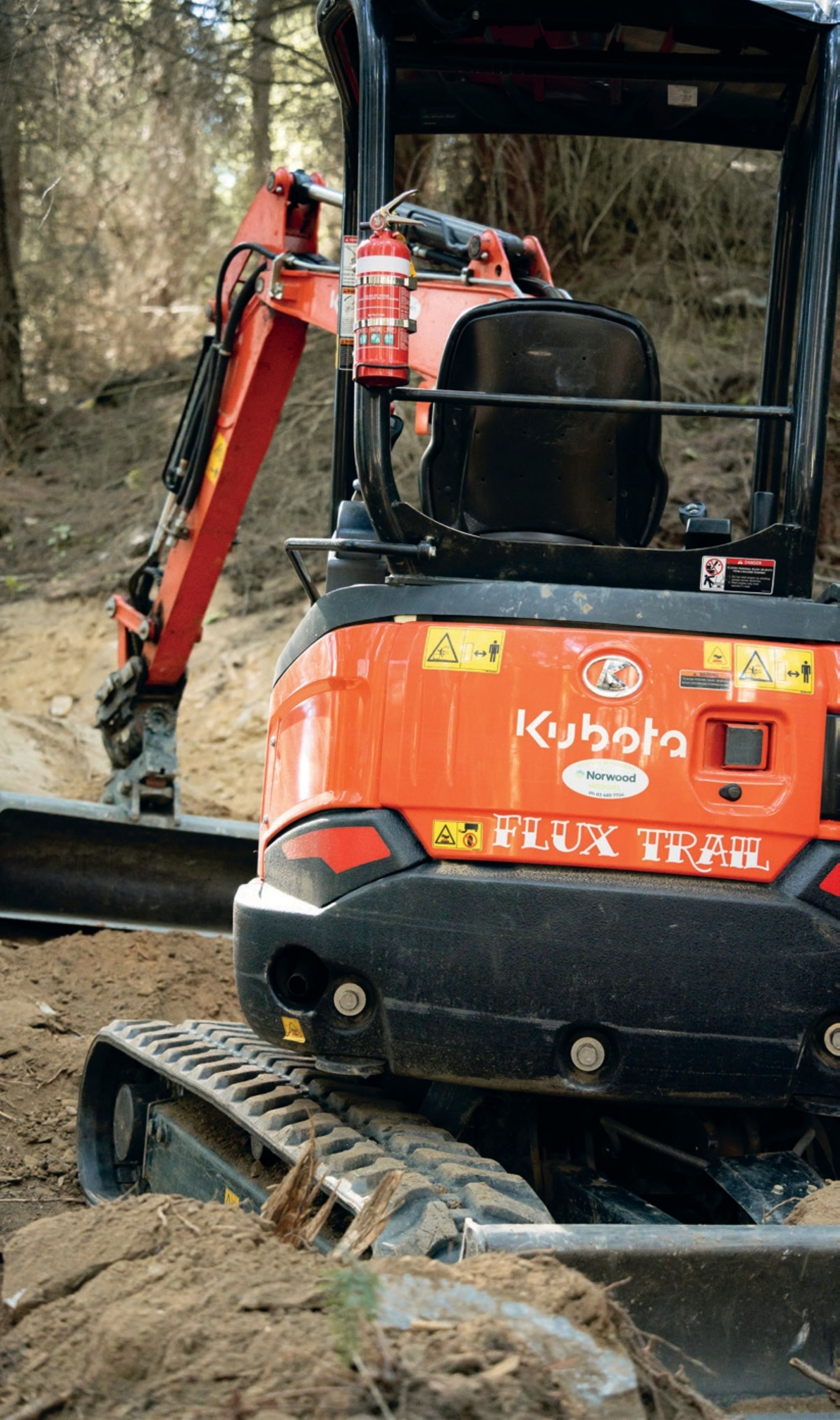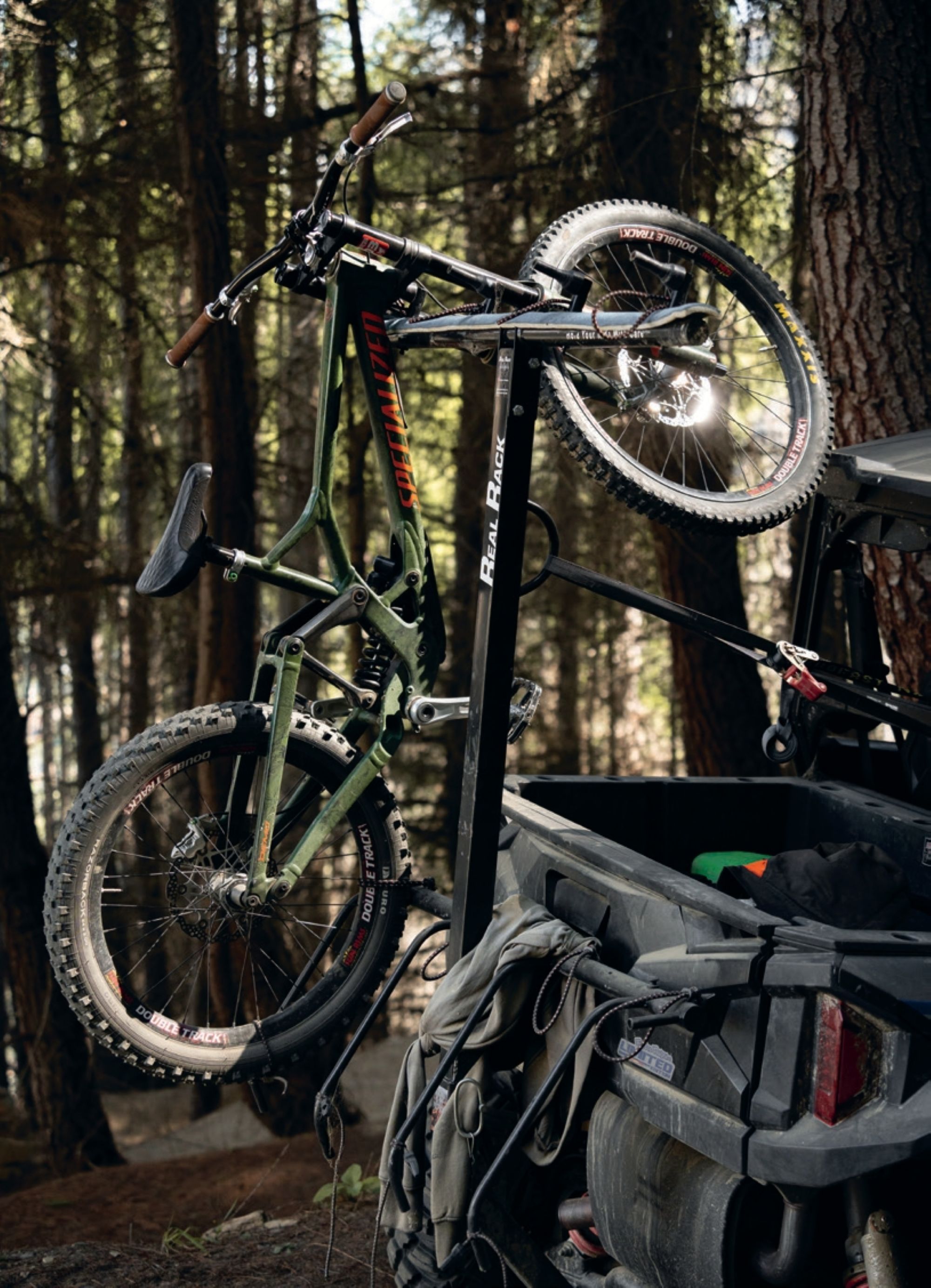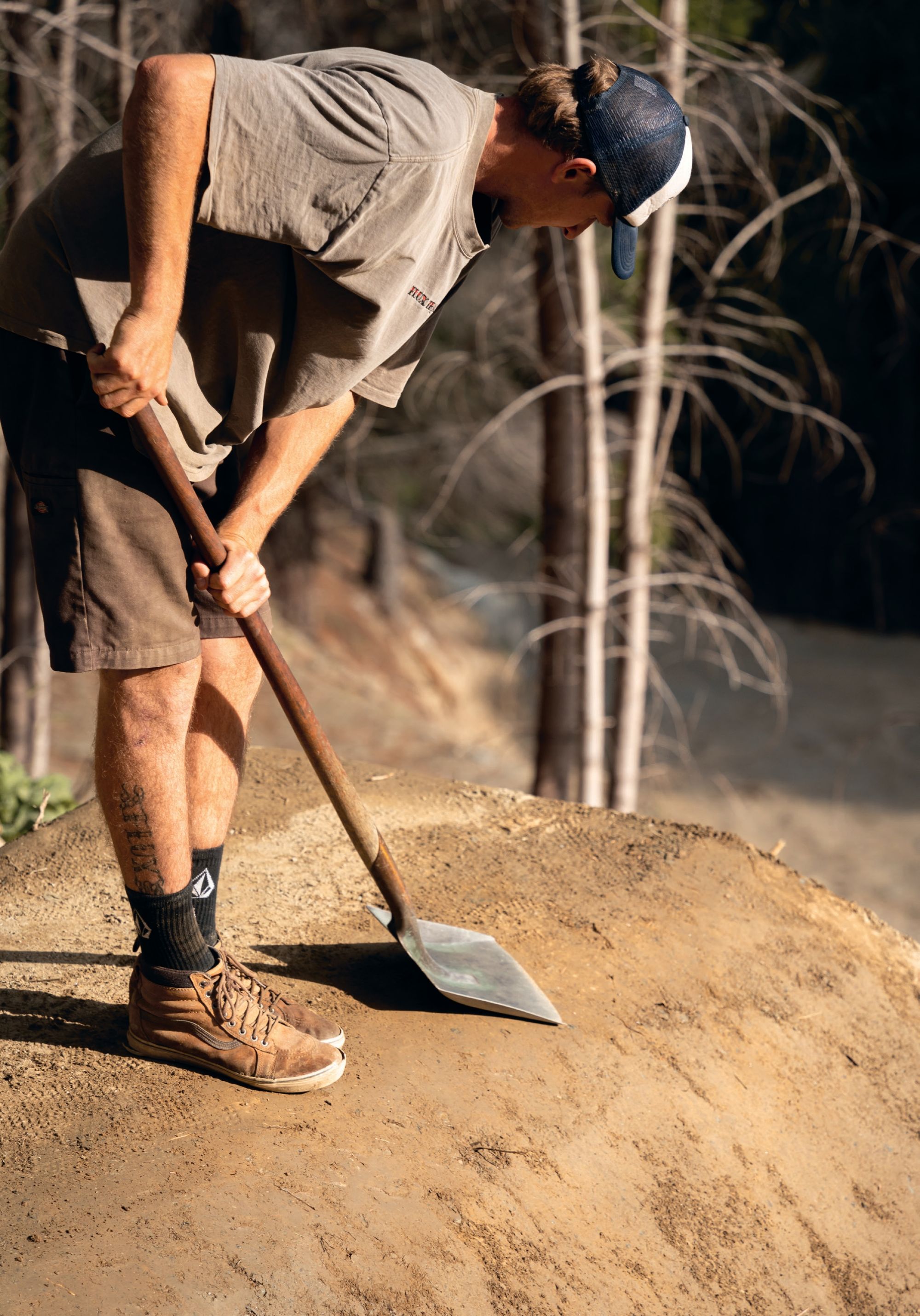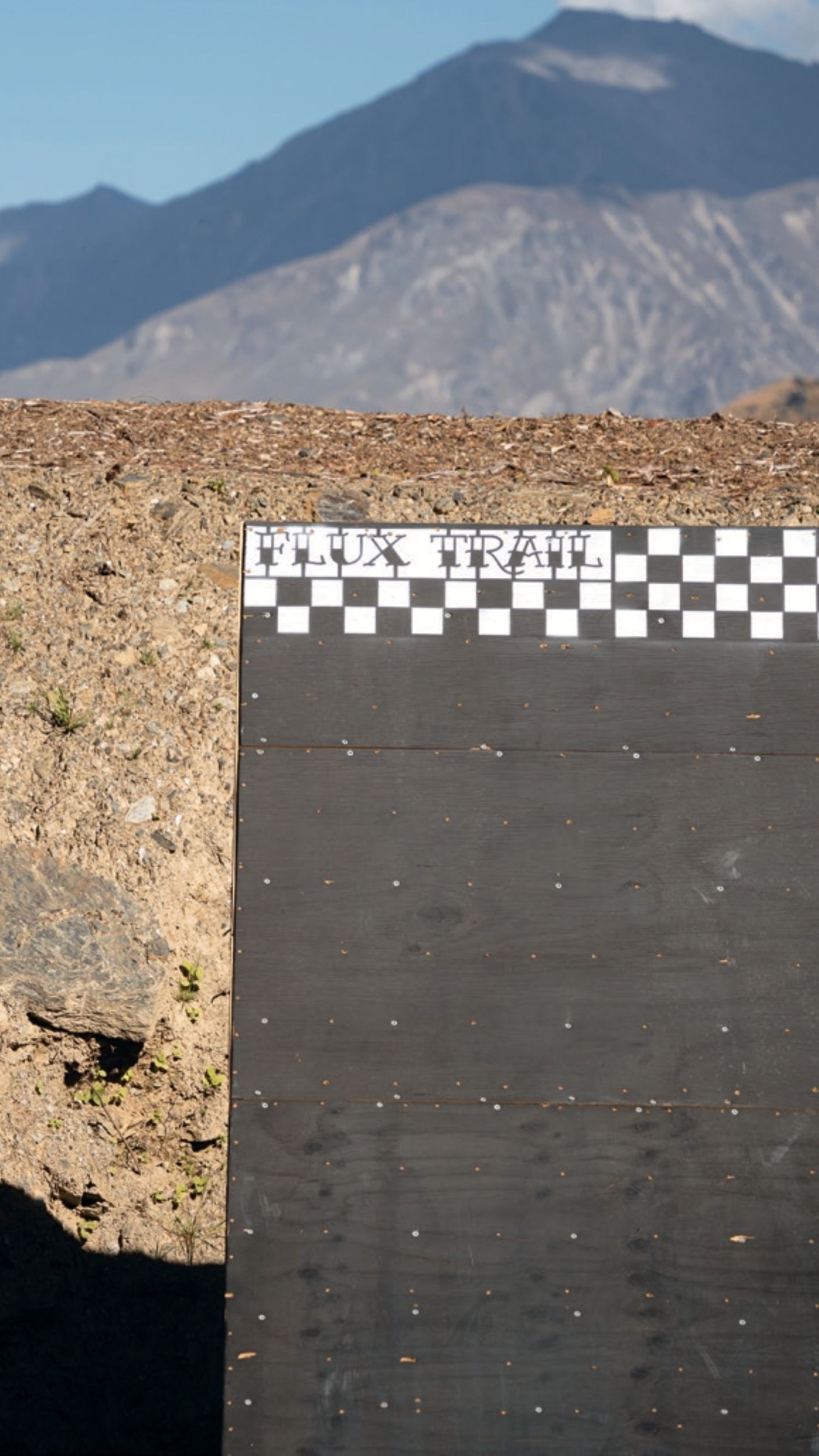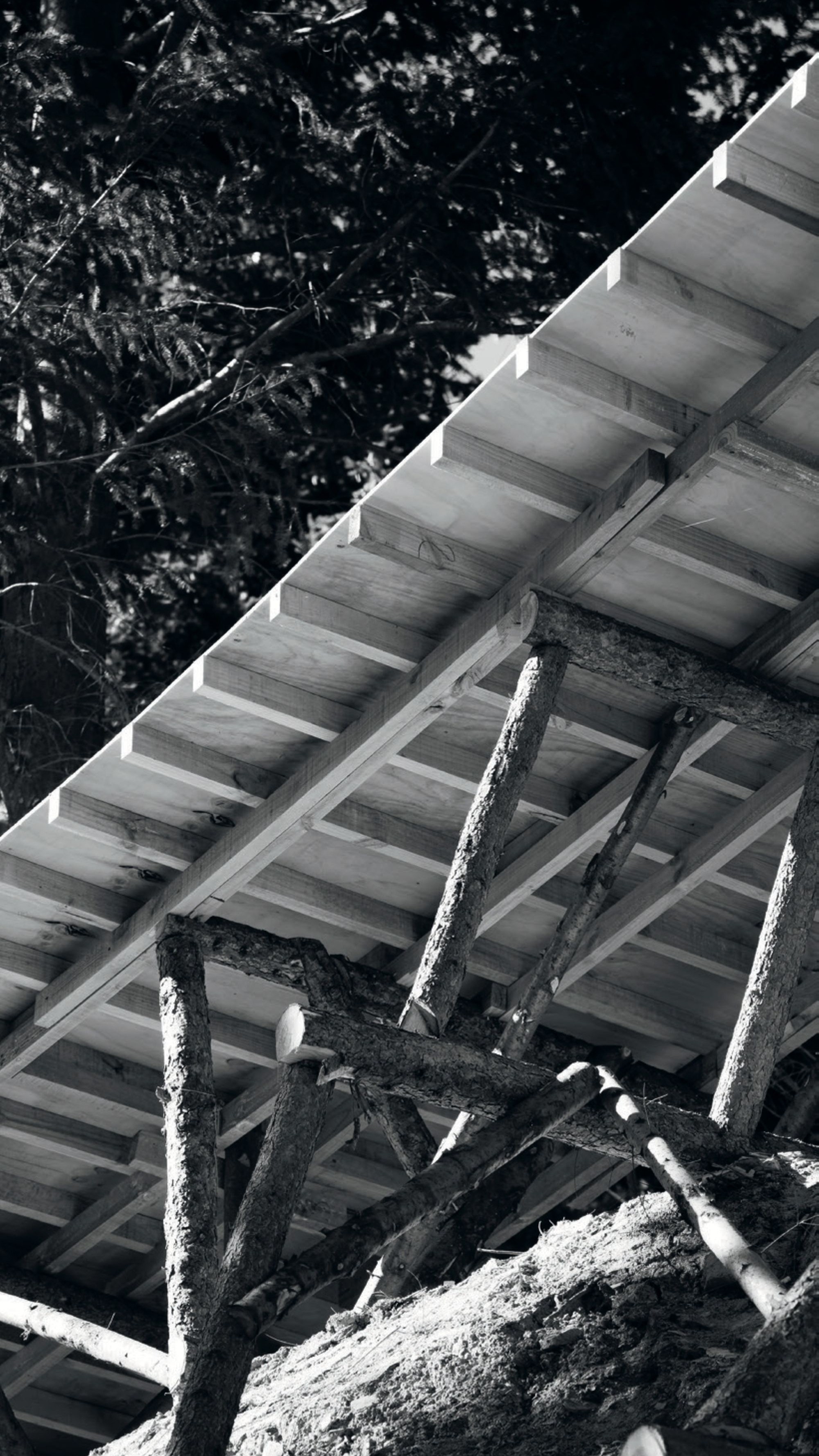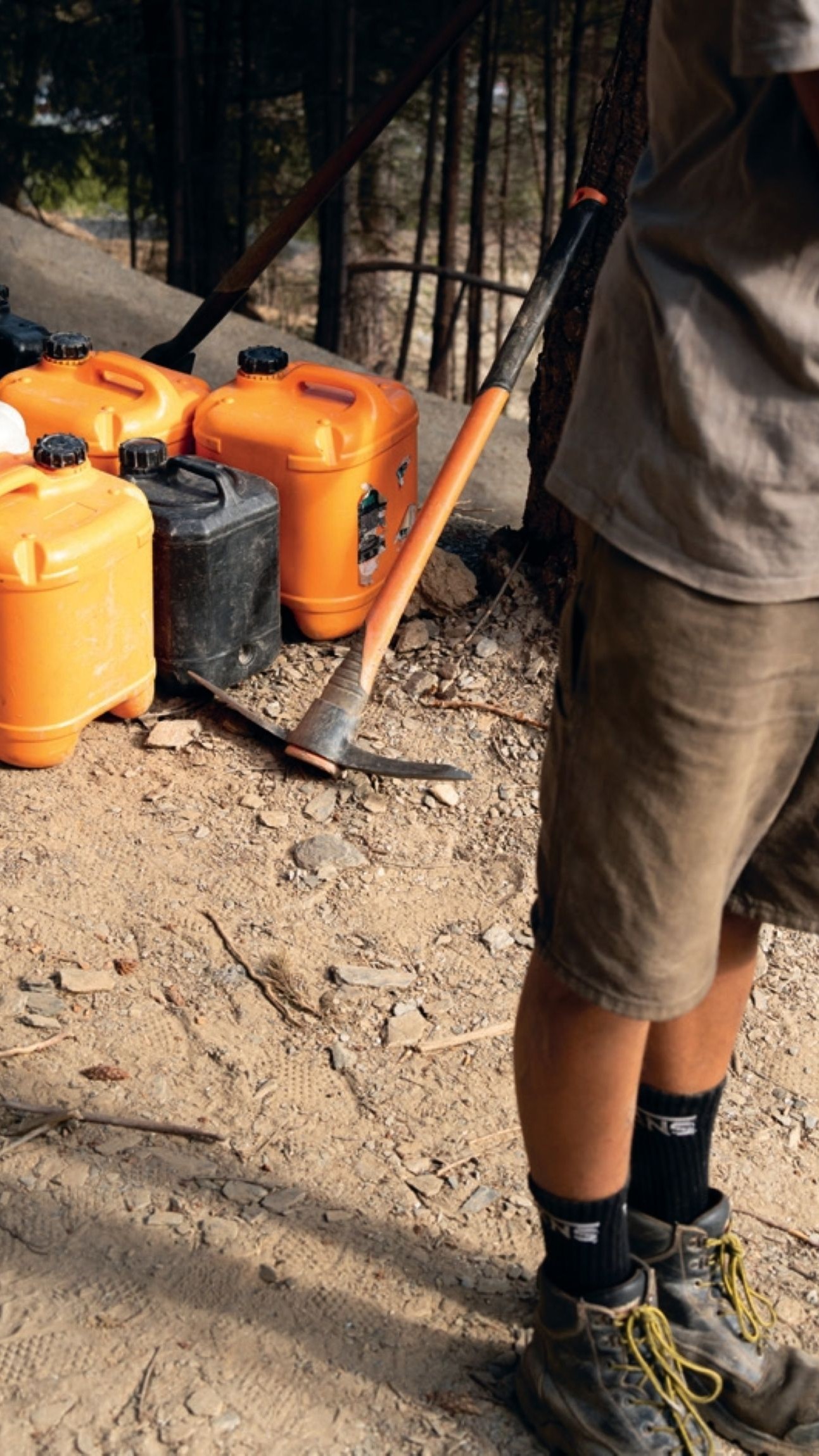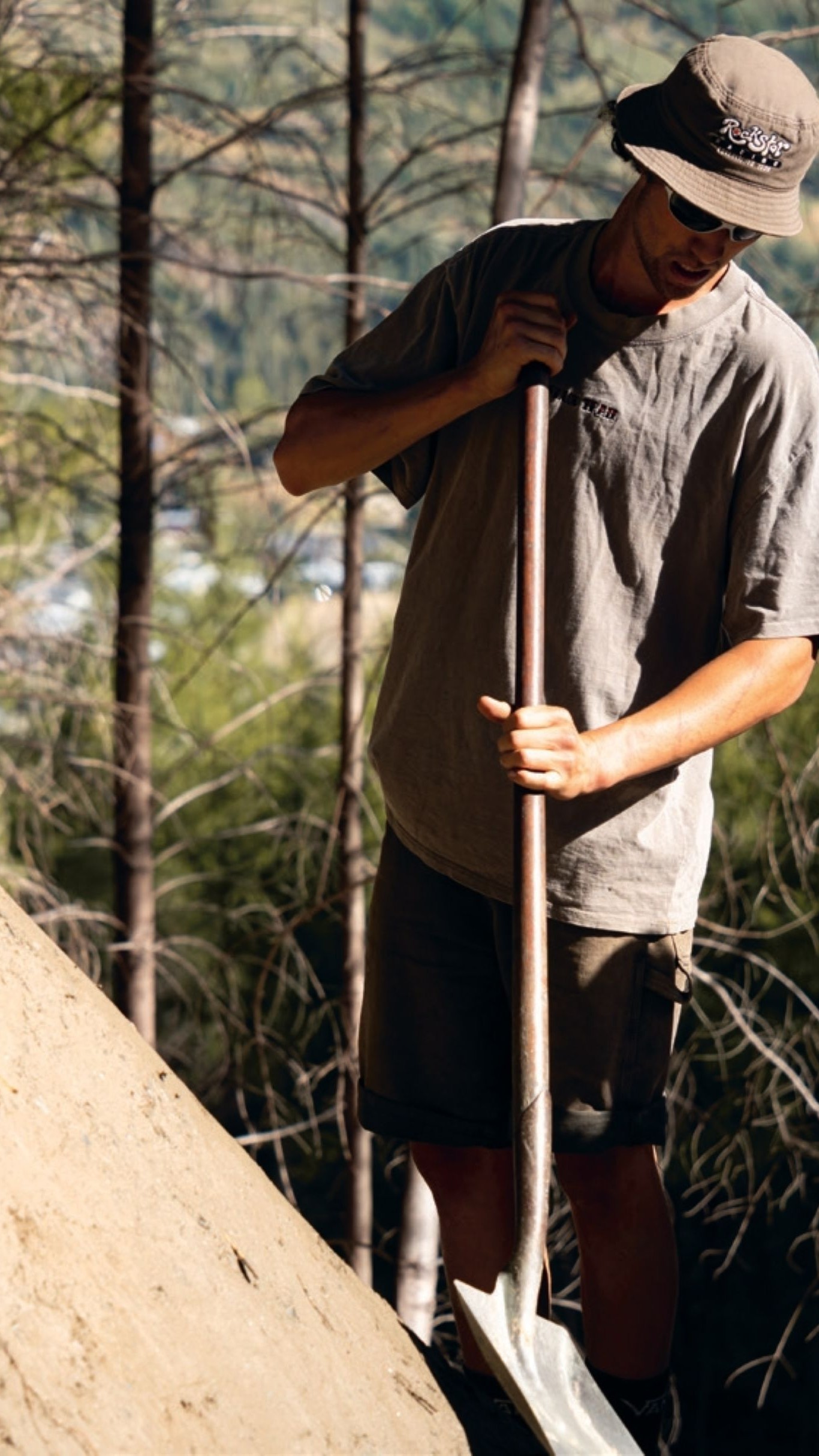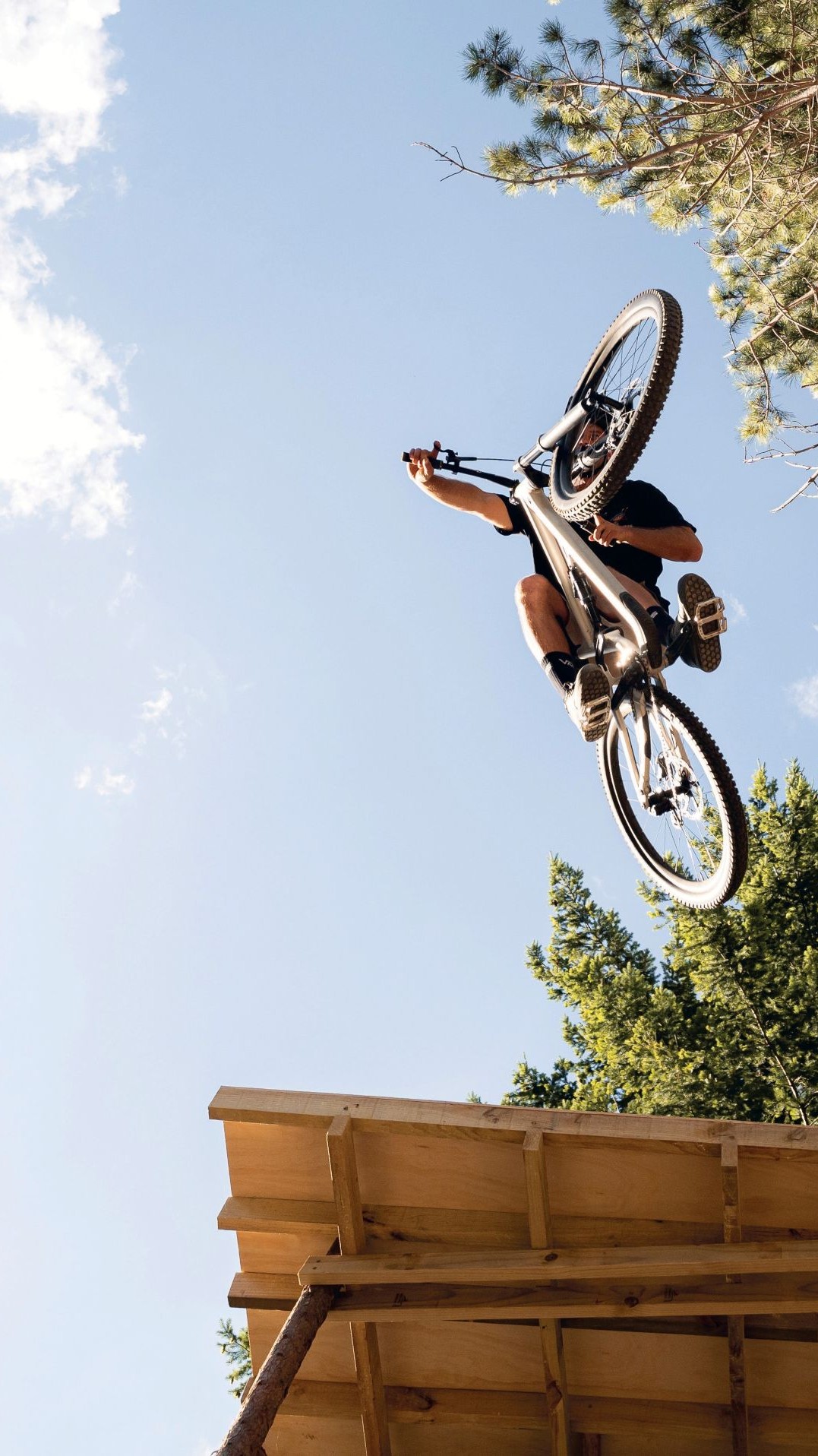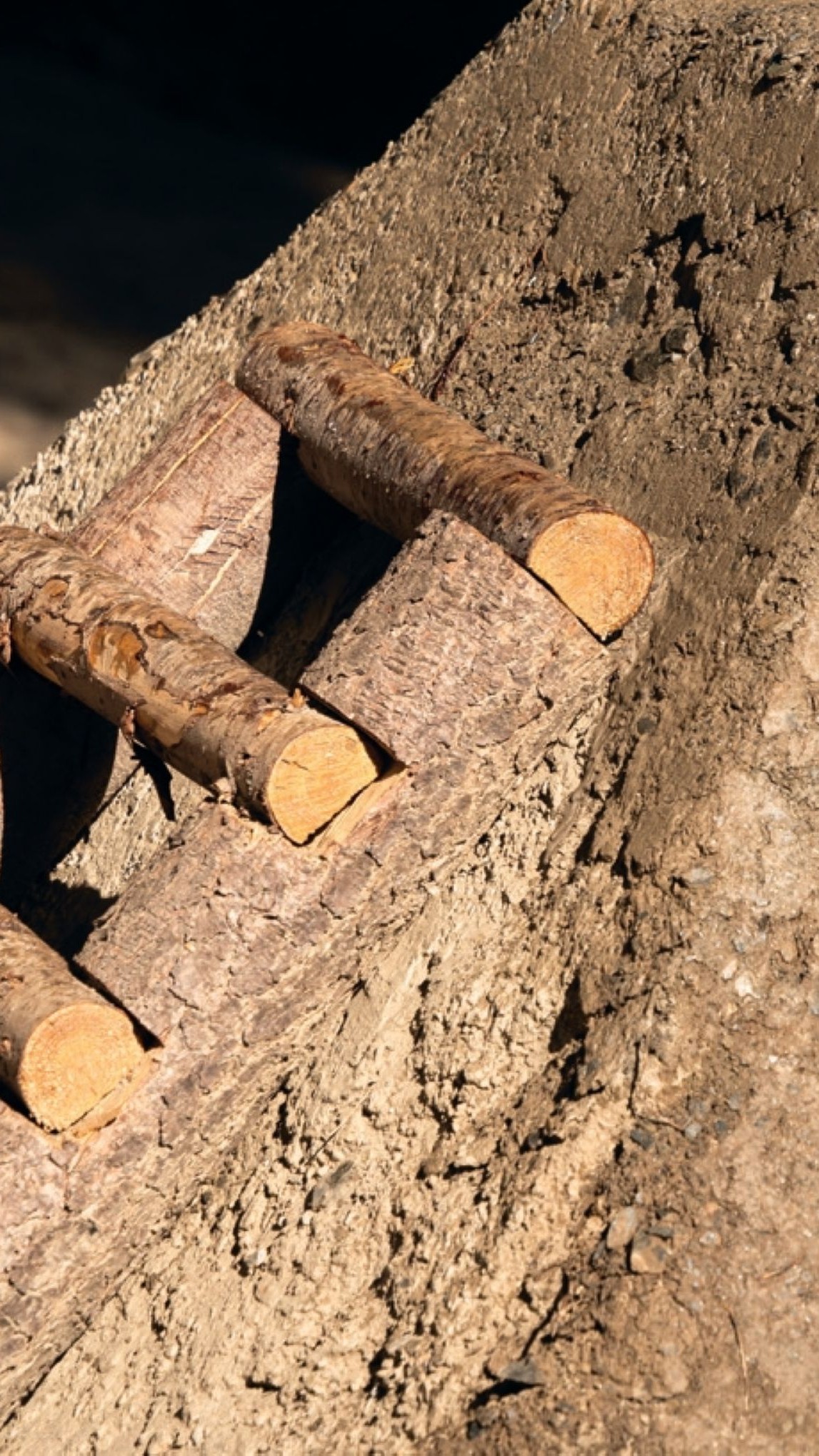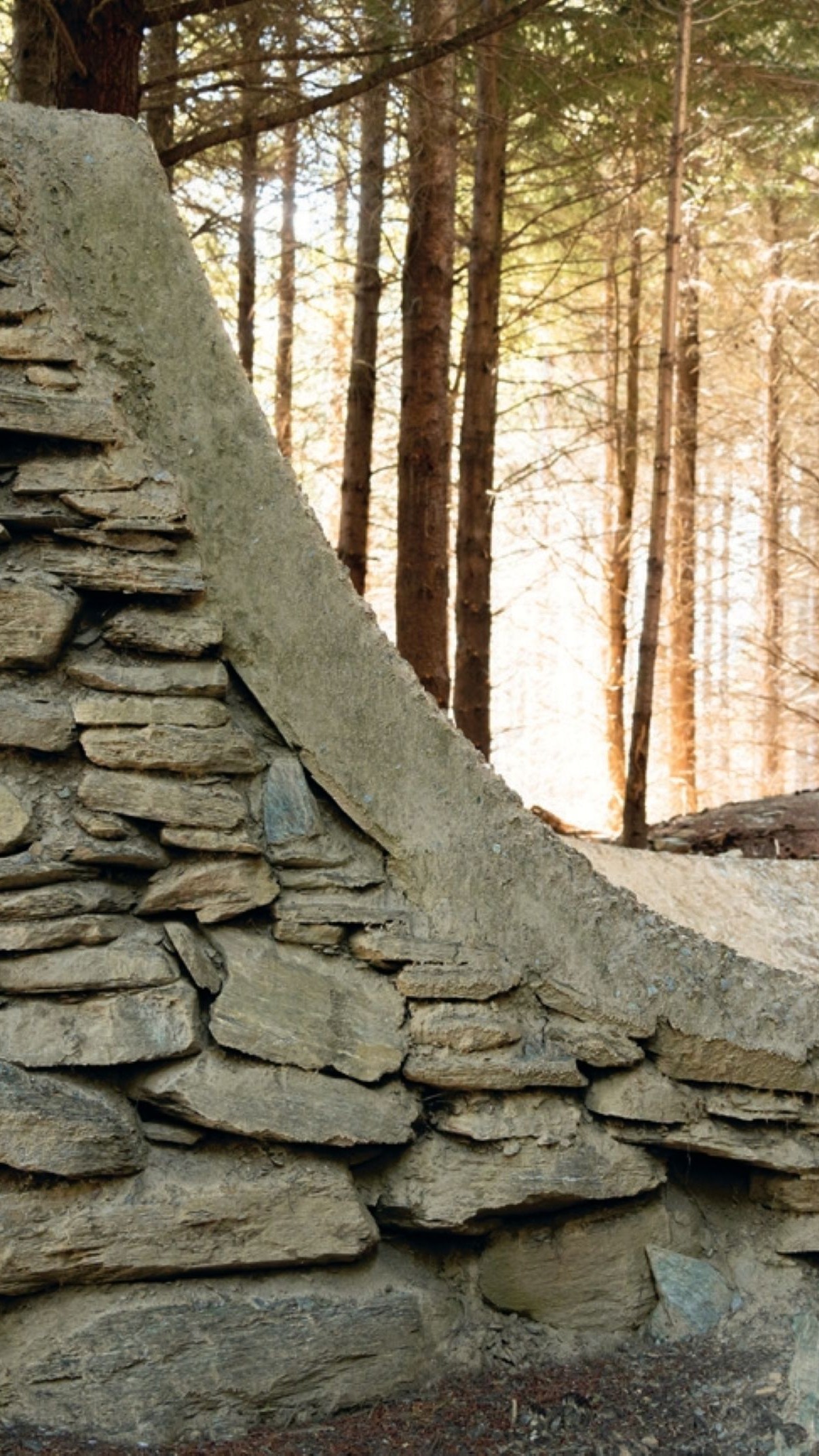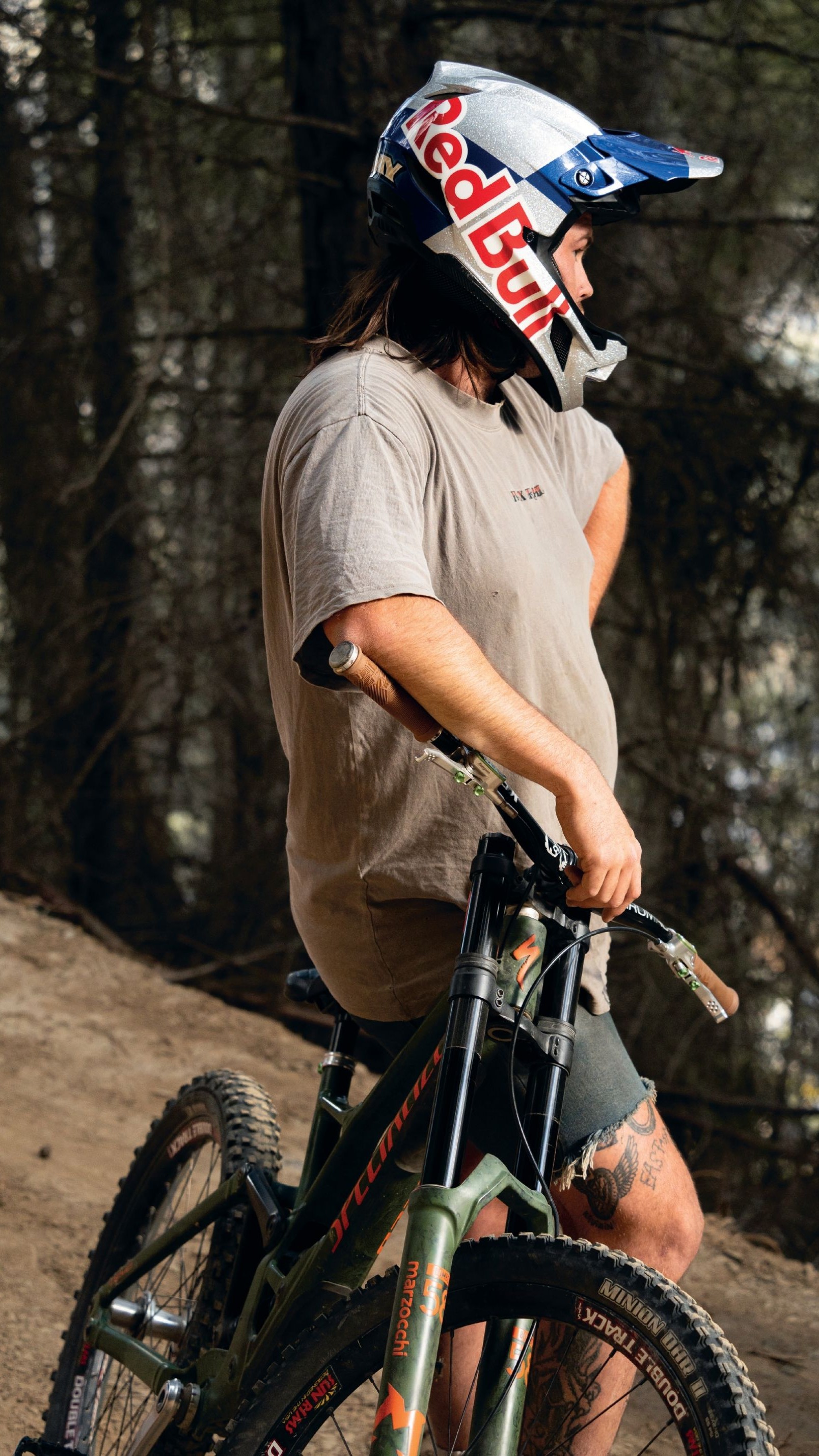Dig. Ride. Repeat
Words by Lester Perry
Images by Cameron MacKenzie & Jim Topliss
Name a sport more diverse than mountain biking. From downhill to cross-country, slopestyle to freeride – the list goes on. Each discipline demands its own unique blend of skill, fitness and creativity – yet for years, competition was the only viable way for riders to make a living, with no alternative to fall back on.
With the rise of social media, however, everything has changed. Riders were suddenly able to diversify and build their own platforms, allowing them to market themselves, promote the brands that support them, and even create their own in the process.
Flux Trail was an early adopter of this concept, leveraging their collective following and reputation to build a business with its own identity—one that combines their passion for digging and riding. Headed by Remy Morton, Jacob O’Donoghue-Price and David McMillan, this group of friends set out to fill a gap in the market while still carving their own lane in the culture, embracing the digger-rider lifestyle that has helped them to continue their careers as professional athletes.
Remy Morton’s life has revolved around bikes from the very beginning. He started racing BMX at just three years old and quickly became a prodigy. His weekends were soon spent chasing races up and down the east coast of Australia, dominating the competition at every turn. In his spare time, he began digging jumps and trails in the backyard, always looking for ways to go bigger. The backyard acted as a training ground for Remy but also allowed him to hone his own style as a rider. His passion was so infectious that even his father, Jim, got himself a bike just to keep up with the fun. Remy’s love for riding soon led him to downhill racing where, at just 11 years old, he made such an impression that the state championships had to create a new category just so he could compete. This is where Remy flourished. No longer just trying to outpace his older brother at local races, he soon found himself in Europe, competing against some of the best at World Cups. He stood out not only for his impressive results but also for his relaxed signature style on the bike, quickly becoming a favorite of the media on the track. In 2017, Remy’s love for big air and wanting to push his own limits found him at Loosefest, a freeride event in Belgium. Unfortunately, Remy overshot one of the final features on the course, resulting in a career- altering crash. The injuries he sustained meant that pursuing racing was no longer an option.
After taking some time to reflect on the accident, Remy packed up and moved to Queenstown to reset himself. He had always aspired to be the best rider he could be but, without racing, he wasn’t sure what that would look like moving forward. Inspired by the likes of Nico Vink, Loosefest founder and former World Cup racer, Remy used the social media following he’d gained from racing, along with his passion for digging, to grow a framework where he could balance creating riding content and building trails to make a living. Recognising an untapped niche in the content space, Remy began to market himself as a ‘bike park’ rider, creating edits and content for social media while simultaneously gaining more professional digging experience. In 2019, with the help of Tom Hey, Remy had the opportunity to join the Elevate Trail crew, contributing to the Crankworx Innsbruck build. While he was over in Europe, he also had the chance to work on the Loosefest build with Nico and the crew. Not only did he get redemption by riding at the same venue where he had his accident, but he also walked away with the King of Loosefest Award.
It didn’t take long for sponsors to take notice of this new lane he was carving for himself, most notably with Remy securing a deal with Red Bull in 2020. However, it wasn’t enough for him to stop working. When Covid hit, like many of us, he found himself rethinking the future. Over a few beers, he and Jacob O’Donoghue-Price brainstormed ways to fund the lifestyle they had always dreamed of. The result? Flux Trail. They set out with a goal to elevate the quality of trails in New Zealand, inspired by the world-class tracks Remy had ridden in bike parks in Europe and Canada. The timing couldn’t have been better, with several trail network expansions planned for the Queenstown area, it was the perfect moment to knuckle down and go for it. While both had trail-building experience and Jacob having worked on the Skyline Bike Park trail crew, neither had any idea about how to run a business. They also had to learn how to operate machinery themselves, as hiring an operator wasn’t feasible. Finding labor was never a challenge, however, as they could always rely on their extended group of friends to hop on board to tackle any project at hand.
One of the first to join them was David McMillan, a close friend with a similar upbringing to Remy. He’d also spent much of his youth building not- so-legal trails and jumps around his home just outside of Canberra. Dave had always dreamed of turning biking into a career which, like Remy, led him down the racing path. Competing in World Cups, he dedicated years to chasing the circuit but eventually realised his speed wasn’t quite at the level needed to win races. Rather than stepping away, he shifted his mindset—if he couldn’t win the race, he’d try to win the practice sessions by drawing as much media attention as he could. This, along with filming videos for the VANZACS brand, kept sponsors engaged and eager to continue working with Dave. However, he too found himself needing extra income to maintain a comfortable life. Wanting to stay in the industry and seeing the opportunities that trail building can bring, he bought into the company and became a co-owner of Flux Trail. Already knowing Remy from their time in the racing scene, and Jacob from summers spent in Queenstown, it was a perfect fit.
In 2021, the crew was approached by Red Bull to do a build for a video project with Remy; Seven Days and 7k. They were tasked with building a ‘DHT’-style trail from scratch, which would later be donated to Boomerang Farm Bike Park, near where Remy grew up just outside of the Gold Coast. DHT is a style synonymous with Flux Trail, blending the flow of BMX trails with the larger air of downhill riding. This was the first real test for Flux, as they had never had to work within such a tight deadline and budget. Remy’s experience with digging in this environment allowed them to leverage his knowledge of the terrain, creating a trail that was not only thrilling to ride but also visually captivating for the audience. The boys knew they really had to rip in and, after seven grueling 14-hour days, the trail was complete–all that was left was to film the segment and enjoy the fruits of their labour. This opened their eyes to what the team was capable of, not only serving as the perfect first piece in their portfolio, but also providing reassurance that they could build high-quality individual features and seamlessly connect them into a functional and cohesive trail. Confident in what they had learned in Australia, Flux took on contracts to apply their unique approach to trail design, bringing their fresh perspective to the existing networks of Skyline and Cardrona Bike Parks. The team wanted riders to flow down trails as smoothly as water on a waterslide, drawing much of their inspiration from water parks such as Wet ‘n Wild. This is where the name ‘Flux’ comes from; representing the action or process of flowing.
Flux quickly started to make a name for themselves, but what truly set them apart from other trail crews was their ability to design and build custom trails—not just for their own film projects, but for other athletes as well. One of their most ambitious projects to date came when they were once again approached by Red Bull to create a tailor-made downhill track that matched the raw style of World Cup racer, Brook MacDonald. Not only was it a dream project to collaborate with someone the team had long admired, but it was also an opportunity to showcase Flux’s work on the world stage. It was the first top-to-bottom trail they had built on a raw hillside, but the opportunity to work on an iconic video was one that couldn’t be turned down. The boys may have been slightly out of their depth taking on a project of this size, but they believe that stepping into challenges like this is the best way to grow. The exposed hillside posed a significant challenge when it came to operating machinery, especially when factoring in unpredictable weather conditions and varying terrain, however, the ability to balance these challenges while still creating a product that seamlessly and sustainably integrates with the environment has become the cornerstone of their work. The trust athlete’s place in the trail’s safety and functionality is crucial, as they know the Flux crew draw on their own riding experience to design trails they would ride themselves. This formula continued to evolve with Flux Trail using these build projects as an effective way to market their services. They went on to work on builds for Harriet Burbidge-Smith and were even scouted to contribute to a segment in Brendan Fairclough’s Death Grip 2 movie. This served as a point of recognition for both the company and Dave, who was featured in the segment riding the very features he had built.
Flux Trail has come full circle, once again securing the contract for the Crankworx Cairns build in collaboration with World Trail. This time, they’re not designing a course for just one athlete, they’re creating multiple courses for over a hundred. With plenty of opinions to navigate, ever-changing plans, and the need to adapt on the fly, the team embraces the challenge while understanding the immense pressure that comes with a job like this. Millions of dollars are on the line with an event of this scale, meaning missing a deadline is not an option. Collaborating with a world- renowned organisation like World Trail allows them to learn from their years of experience in the industry, continuing to raise their own standards and pushing their limits as builders. Remy has always stood by his goal of changing sport, but he also wants to make a lasting impact on the trail-building industry. Seeing the results Flux has achieved, he and his team recognise the business model’s potential for the future. Their vision is to build an organisation at the forefront of an ever- evolving sport—one that brands can trust and return to for delivering the highest quality trails possible. All while progressing their own riding to become the riders they have always aspired to be.
